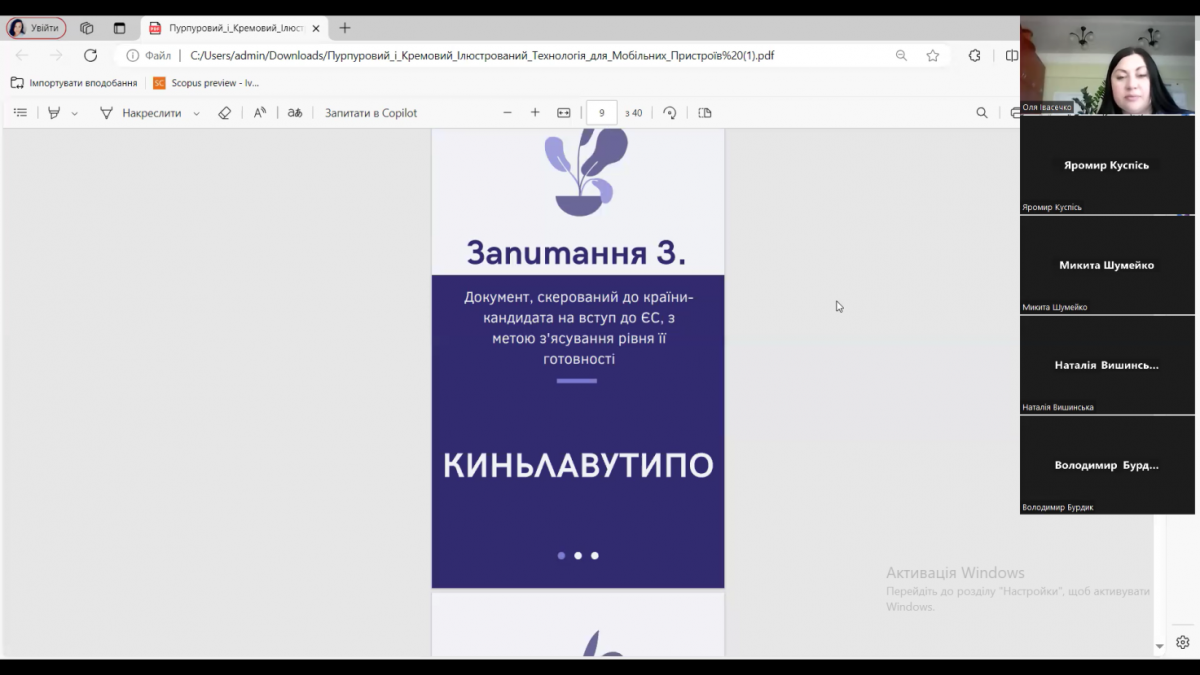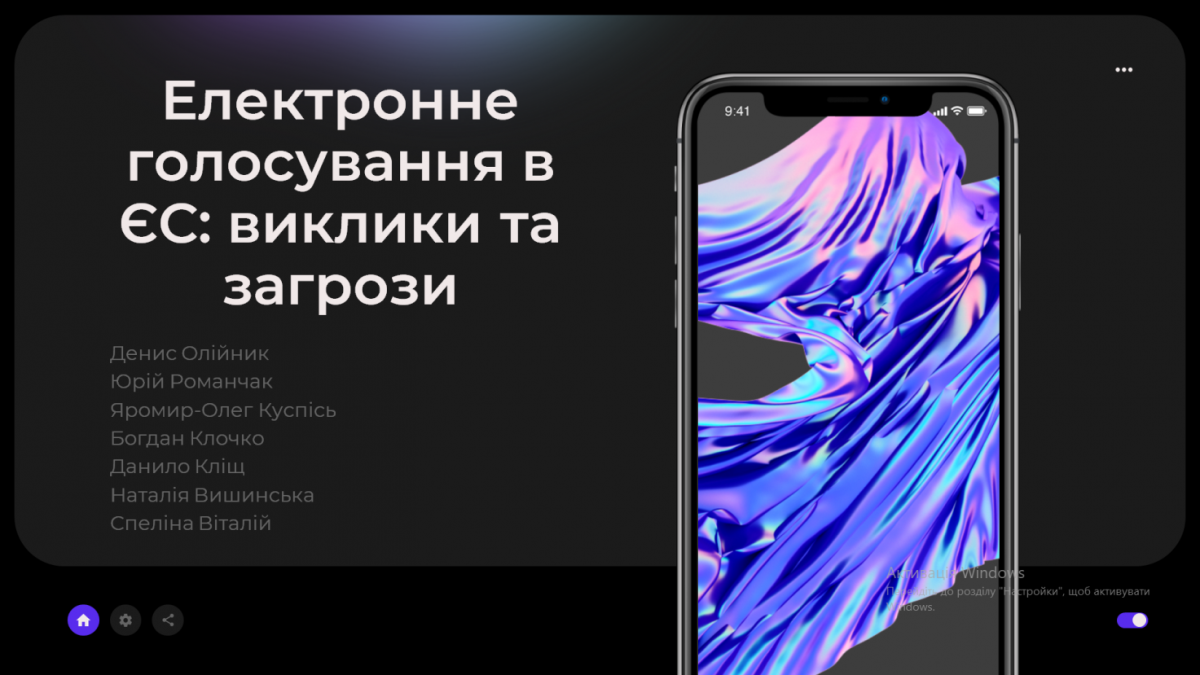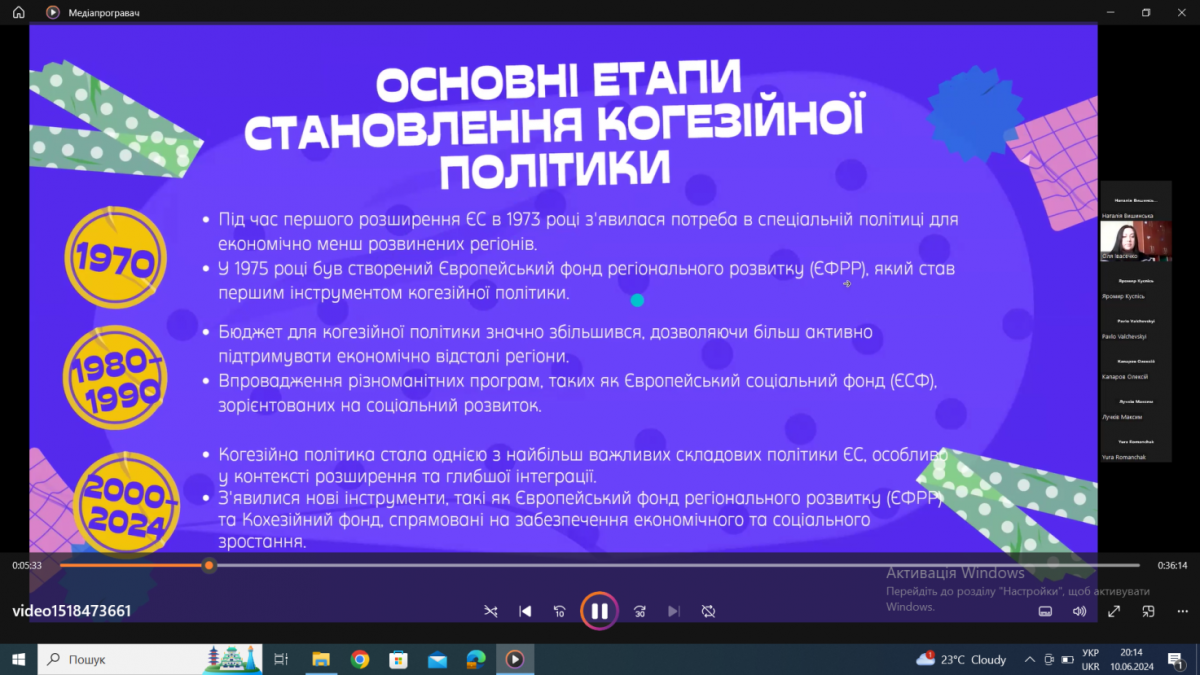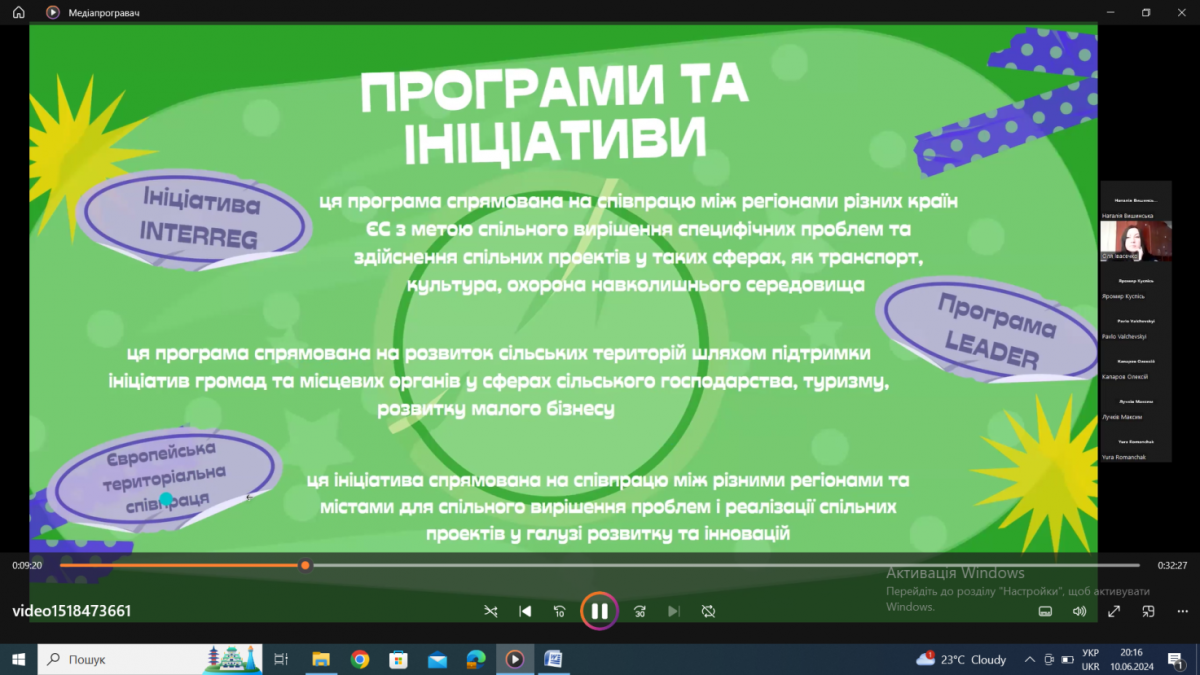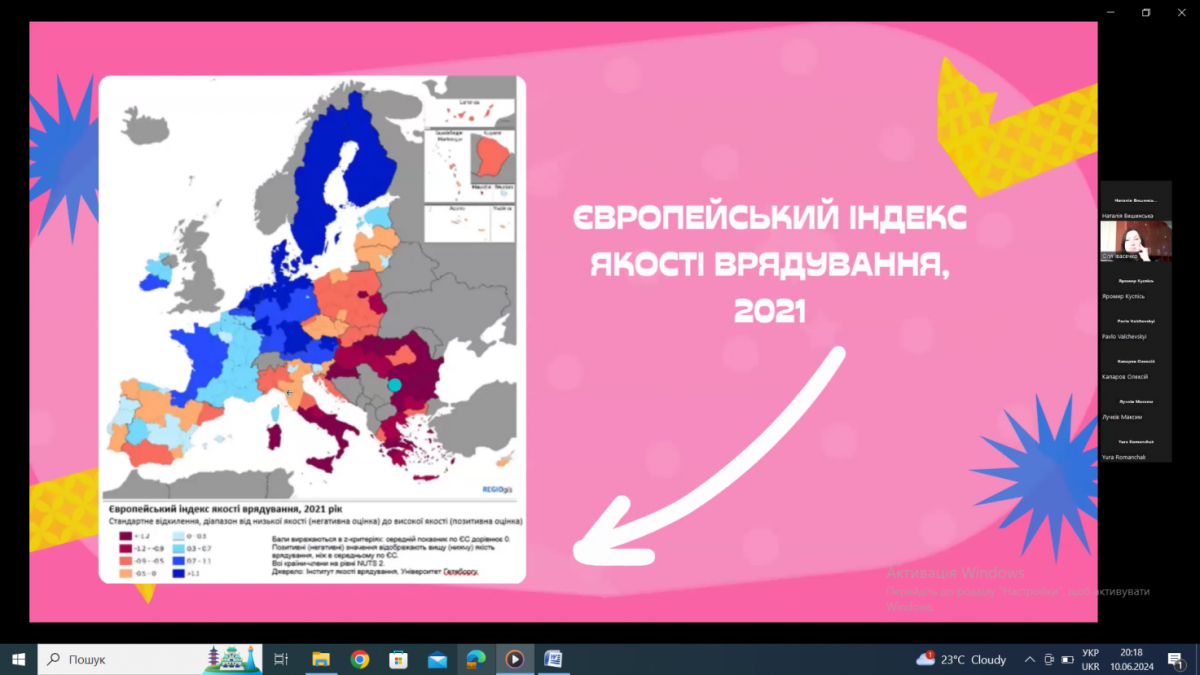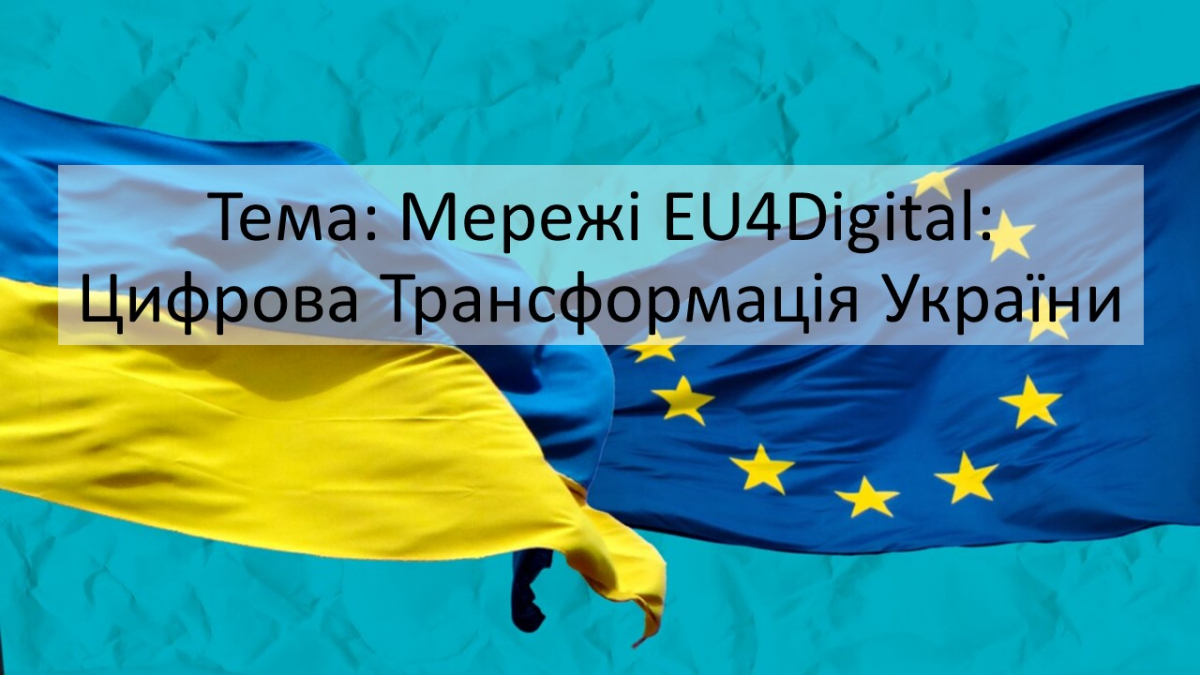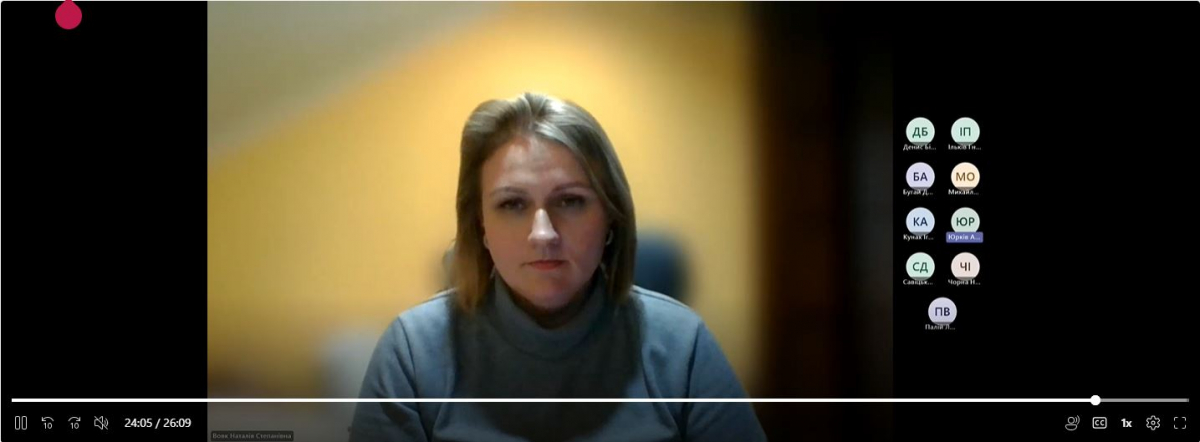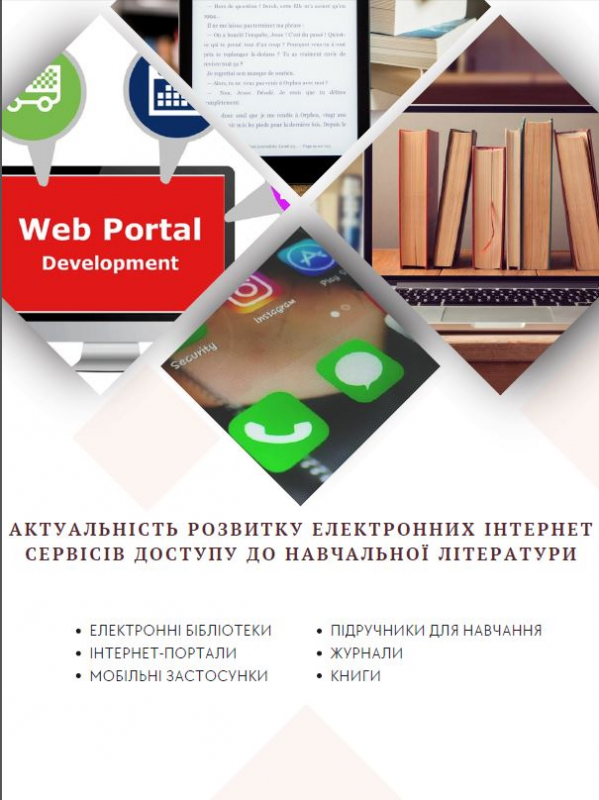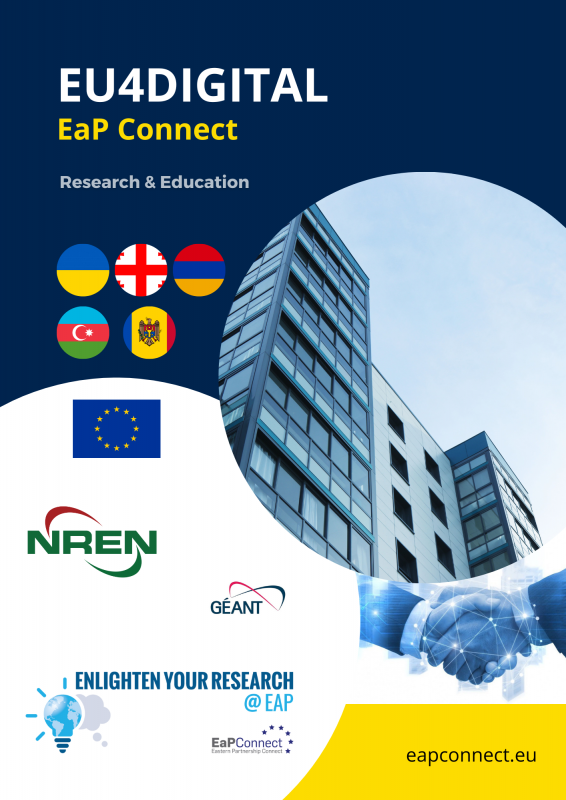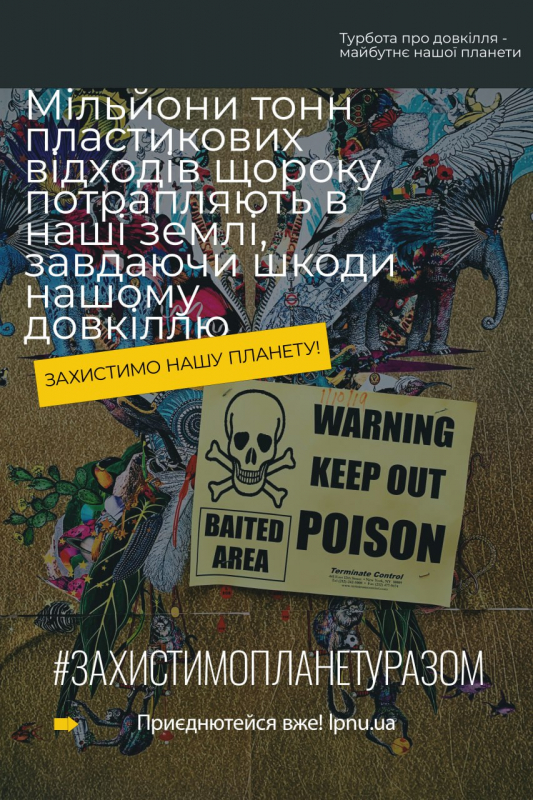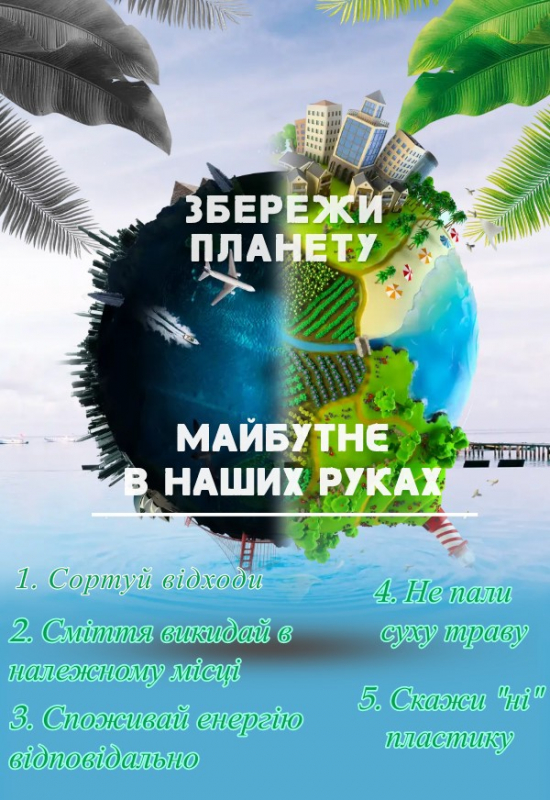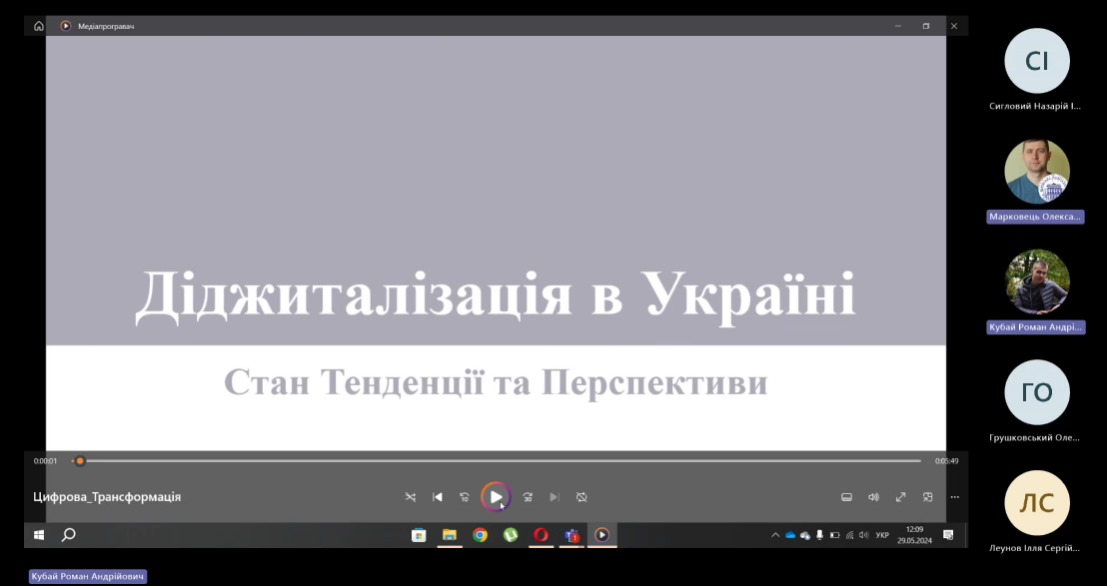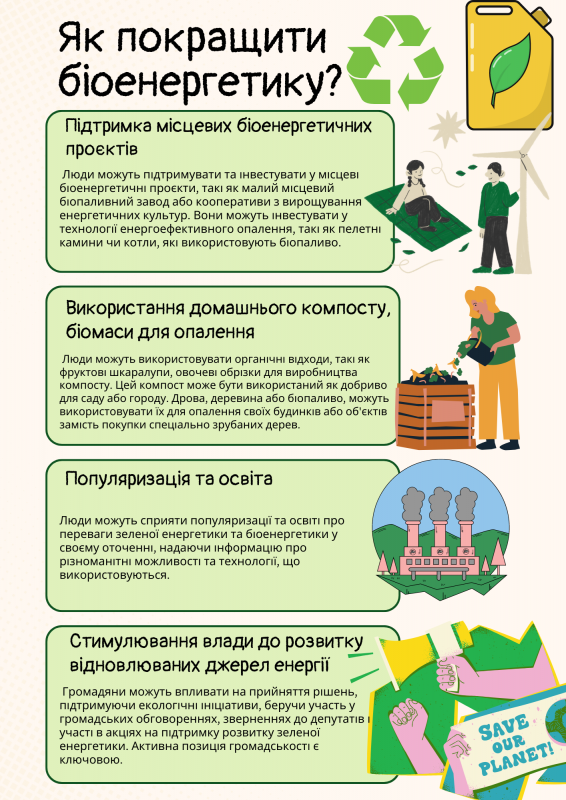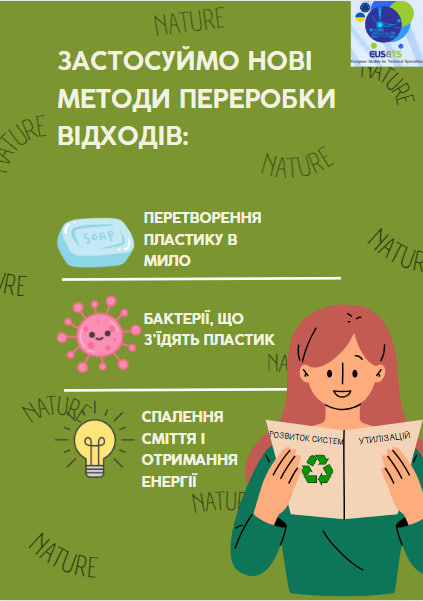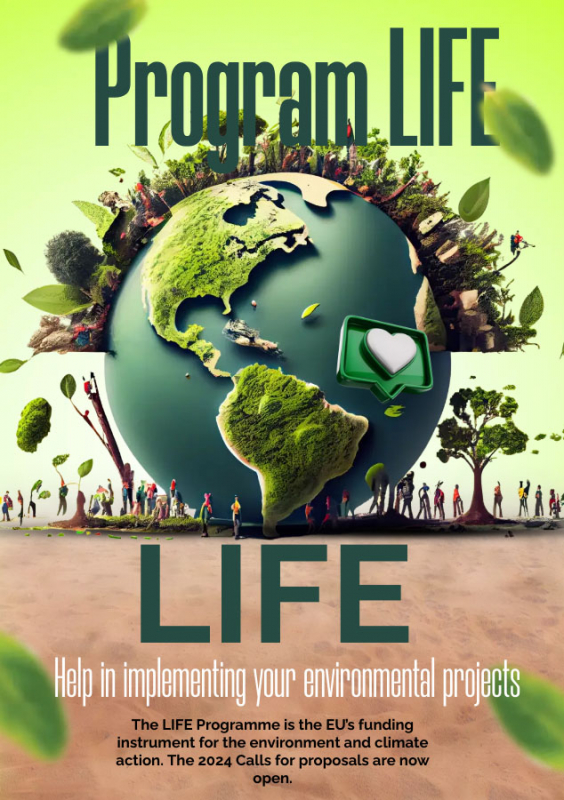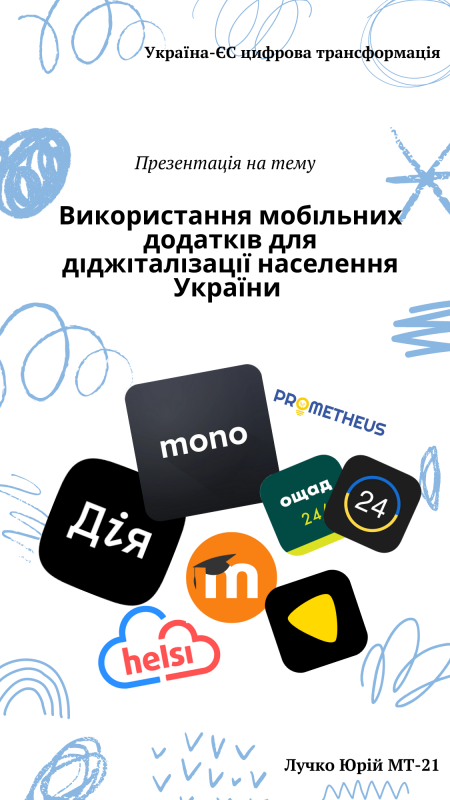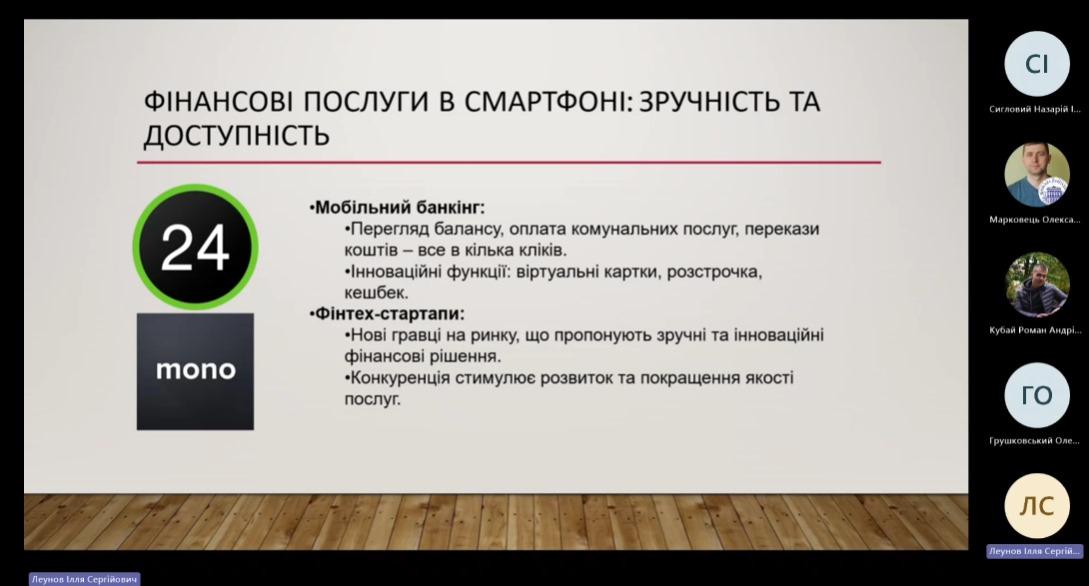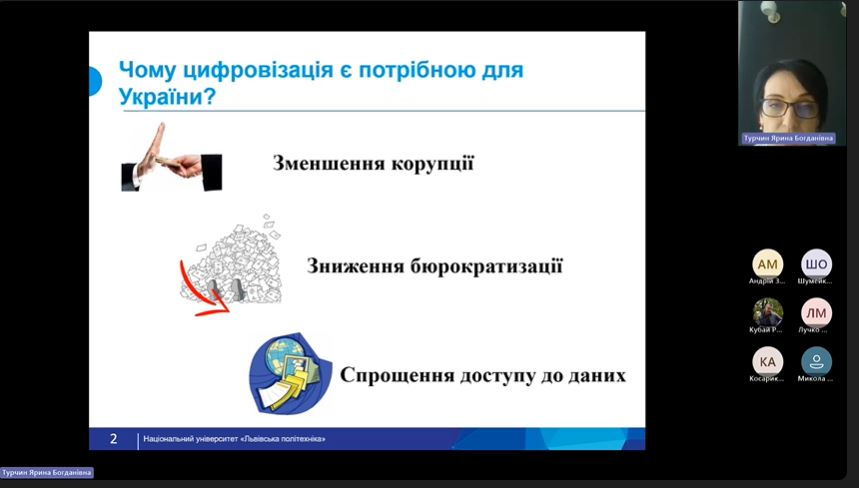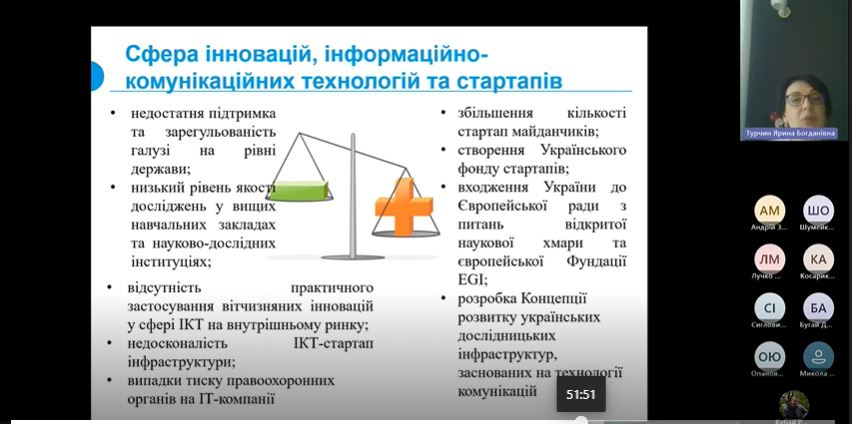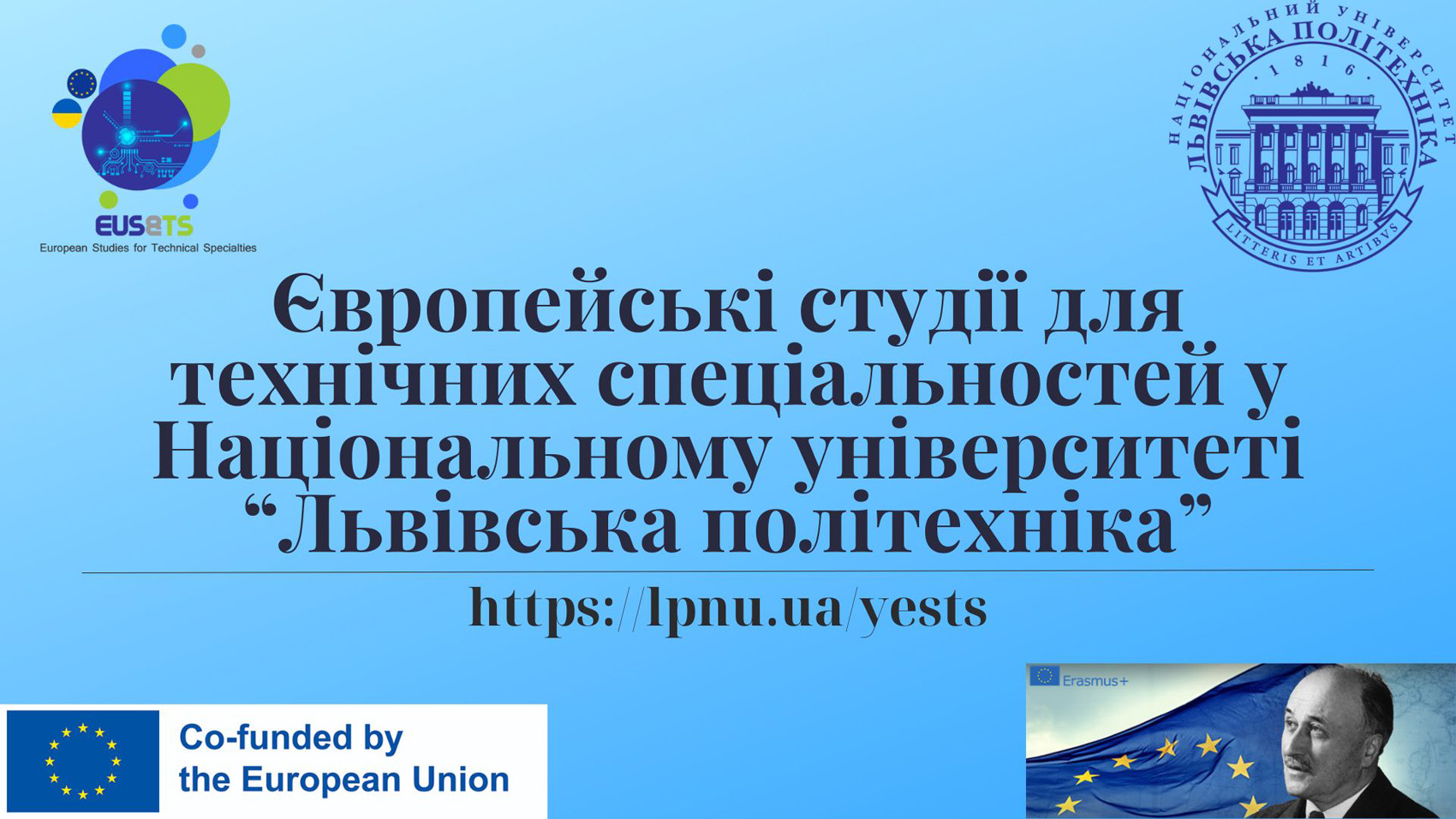The second year of the “European Studies for Technical Specialties at Lviv Polytechnic National University” project has come to an end. According to the results of the spring semester of the 2023/2024 academic year, 318 students successfully completed three elective courses: "EU Environmental and Climate Sustainability", " Ukraine- EU: Digital Transformation" and "EU Energy and New Trends for Ukraine". In total, 537 students improved their knowledge of the EU and Ukraine's European integration during the academic year.
Lecture courses are filled with new and relevant information, and all practical classes are conducted in an interactive manner using various teaching methods, such as debates, gallery walks, snow globes, windshields, the Microphone method, problem circle, SCAMPER, etc.
One of the final tasks of the modules is collective projects, during which students mainly focused on researching EU initiatives and the specifics of their implementation in Ukraine, taking into account the professional specialization of their teams.
Thus, 148 students (Institute of Energy and Control Systems, Institute of Computer Science and Information Technology, Institute of Computer Engineering and Automation, Institute of Chemistry and Chemical Technology, Institute of Sustainable Development, Institute of Civil Engineering and Engineering Systems, Institute of Humanities and Social Sciences) successfully completed the module “EU Environmental and Climate Resilience”. As part of their individual projects, the teams presented research on the specifics of EU support programs, in particular on the following topics: “Ecological transport and the development of an electric and hybrid public transport system”, “Environmental pollution due to mining and ore processing in the EU”, “Green Future: How the EU helps the Eastern Partnership”, “Life – the EU's environmental and climate program”, “Development of green energy in Ukraine through the use of biofuels and biogas”, and others.
Knowledge of digital transformation and EU best practices was improved by 108 full-time students (Institute of Mechanics and Transport, Institute of Computer Technology and Automation, Institute of Humanities and Social Sciences, Institute of Chemistry and Chemical Technology, Institute of Civil Engineering and Engineering Systems, Institute of Radio Electronics, Institute of Computer Science and Information Technology, Institute of Law and Psychology) through the EU-Ukraine: Digital Transformation module. The most relevant topics for the students were the introduction of modern digital technologies in various sectors of the economy, innovative teaching methods, cybersecurity, and regulatory aspects of digital transformation in accordance with European standards. The students presented their team work on the study of the peculiarities of digital transformation in various sectors of the economy in Ukraine and the EU, in particular on the following topics: “E-voting in the EU: Challenges and Threats”, “EU's Common Technology Policy”, “EU4Digital Project”, “Digitalization of Local Government Administrative Services: EU and Ukrainian Experience”, “Relevance of the Development of Electronic Internet Services to the Student's Educational Literature”, “Digitalization as a Global Trend”, “EU Experience in Using Cloud Technologies”, etc.
62 students (Institute of Power Engineering and Control Systems, Institute of Humanities and Social Sciences, Institute of Computer Technologies and Automation) learned about the EU's progressive experience in energy efficiency and energy saving. The students presented a number of their research projects, which concerned both EU energy trends and the specifics of the implementation of Brussels' energy programs and initiatives in Ukraine. Among the projects submitted by the students, the following are worth highlighting: “Hydropower in Ukraine”, “Key areas of the EU's modern energy policy: problems and challenges of digitalization”, “Renewable energy development in the EU”, “Energy-saving technologies in Ukraine: challenges and solutions with the support of the European Union”, and others.
The students positively evaluated the content of the modules and the methods of teaching them, as they gained not only theoretical knowledge about the European Union but also practical skills in implementing European experience for the development and post-war recovery of Ukraine.
As a result of successful completion of the modules, each student received a certificate of learning.
In addition, students participated in seven lectures and discussions with well-known practitioners, experts, and researchers from the European Union (Ihor Panchenko, Head of Regional Digital Transformation at the Ministry of Digital Transformation of Ukraine; Maksym Stoliarchuk, Head of the Digital Development Department of the Lviv Regional Military Administration; Dainius Žalimas, Dean of the Law Faculty of Vytautas Magnus University, Representative of the Republic of Lithuania to the European Commission for Democracy through Law; Andriy Ursta, energy market analyst at DiXi Group; Yevhen Magda, political scientist, Director of the Institute of World Policy, Ph, D. in Political Science, Associate Professor of the National Technical University of Ukraine “Igor Sikorsky Kyiv Polytechnic Institute”; Oleksandr Sukhodola, Head of the Department of Critical Infrastructure, Energy and Environmental Security of the National Institute for Strategic Studies, Doctor of Science in Public Administration, Professor; Svitlana Romanko, founder and director of “Razom We Stand”), participants of the regional business webinar “Approximation to EU standards and opportunities for Ukrainian business: experience of the Western region” (guest speaker – Serhiy Pylypiv, CEO of Grafix, Chairman of the Environment Committee of Rotary International District 2232, developer of the Green Mill compressed air windmill, trainer of the Rotary Leadership Institute), workshop “Boost your digitalization”, Academy of European Studies “Decentralization and community development: EU programs for Ukraine", winter school ‘European best practices: energy, digital and environmental dimensions’, interactive event Speaking Club ‘New European trends and professional growth’, media literacy events ‘Truth about the EU’, interactive event Eurolibrary (guest speaker – Anastasia Doroshenko, PhD in Technical Sciences, Associate Professor of the Department of Automated Control Systems at the Institute of Computer Science and Technology, coordinator of a number of Jean Monnet projects at Lviv Polytechnic National University) and an excursion to Lviv Open Lab, a space for innovative education in Lviv, as part of European public tours.
